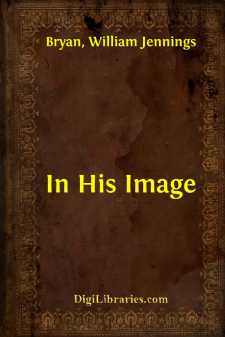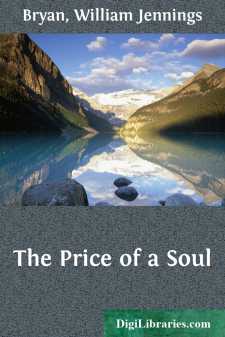Categories
- Antiques & Collectibles 13
- Architecture 36
- Art 48
- Bibles 22
- Biography & Autobiography 813
- Body, Mind & Spirit 142
- Business & Economics 28
- Children's Books 14
- Children's Fiction 11
- Computers 4
- Cooking 94
- Crafts & Hobbies 4
- Drama 346
- Education 46
- Family & Relationships 57
- Fiction 11828
- Games 19
- Gardening 17
- Health & Fitness 34
- History 1377
- House & Home 1
- Humor 147
- Juvenile Fiction 1873
- Juvenile Nonfiction 202
- Language Arts & Disciplines 88
- Law 16
- Literary Collections 686
- Literary Criticism 179
- Mathematics 13
- Medical 41
- Music 40
- Nature 179
- Non-Classifiable 1768
- Performing Arts 7
- Periodicals 1453
- Philosophy 64
- Photography 2
- Poetry 896
- Political Science 203
- Psychology 42
- Reference 154
- Religion 513
- Science 126
- Self-Help 84
- Social Science 81
- Sports & Recreation 34
- Study Aids 3
- Technology & Engineering 59
- Transportation 23
- Travel 463
- True Crime 29
In His Image
Description:
Excerpt
I
"IN THE BEGINNING—GOD"
Religion is the relation between man and his Maker—the most important relationship into which man enters. Most of the relationships of life are voluntary; we enter into them or not as we please. Such, for illustration, are those between business partners, between stockholders in a corporation, between friends and between husband and wife. Some relationships, on the other hand, are involuntary; we enter into them because we must. Such, for illustration, are those between man and his government, between man and society, and between man and his Maker.
Tolstoy declares that morality is but the outward manifestation of religion. If this be true, as I believe it is, then religion is the most practical thing in life and the thought of God the greatest thought that can enter the human mind or heart. Tolstoy also delivers a severe rebuke to what he calls the "Cultured crowd"—those who think that religion, while good enough for the ignorant (to hold in check and restrain them), is not needed when one reaches a certain stage of intellectual development. His reply is that religion is not superstition and does not rest upon a vague fear of the unseen forces of nature, but does rest upon "man's consciousness of his finiteness amid an infinite universe and of his sinfulness." This consciousness, Tolstoy adds, man can never outgrow.
Evidence of the existence of an Infinite Being is to be found in the Bible, in the facts of human consciousness, and in the physical universe. Dr. Charles Hodge sets forth as follows the principal arguments used to maintain the existence of a God:
I. The a priori argument which seeks to demonstrate the being of a God from certain first principles involved in the essential laws of human intelligence.
II. The cosmological argument, or that one which proceeds after the posteriori fashion, from the present existence of the world as an effect, to the necessary existence of some ultimate and eternal first cause.
III. The teleological argument, or that argument which, from the evidence of design in the creation, seeks to establish the fact that the great self-existent first cause of all things is an intelligent and voluntary personal spirit.
IV. The moral argument, or that argument which, from a consideration of the phenomena of conscience in the human heart, seeks to establish the fact that the self-existent Creator is also the righteous moral Governor of the world. This argument includes the consideration of the universal feeling of dependence common to all men, which together with conscience constitutes the religious sentiment.
V. The historical argument, which involves: (1) The evident providential presence of God in the history of the human race. (2) The evidence afforded by history that the human race is not eternal, and therefore not an infinite succession of individuals, but created. (3) The universal consent of all men to the fact of His existence.
VI. The Scriptural argument, which includes: (1) The miracles and prophecies recorded in Scripture, and confirmed by testimony, proving the existence of a God....



